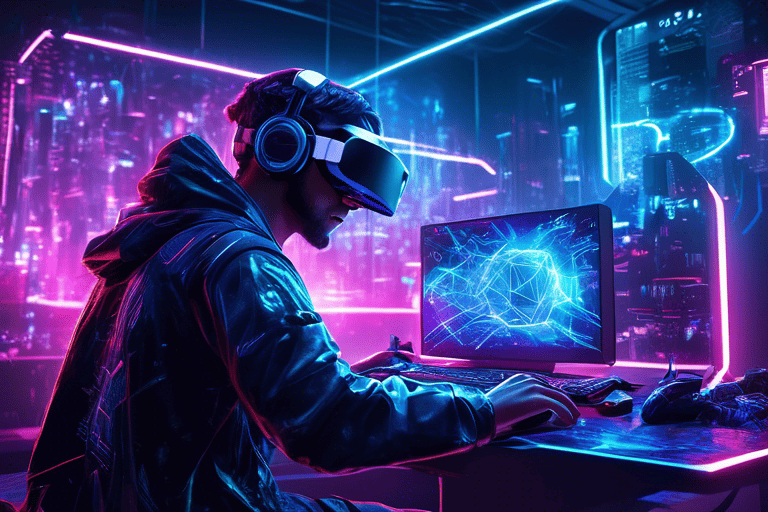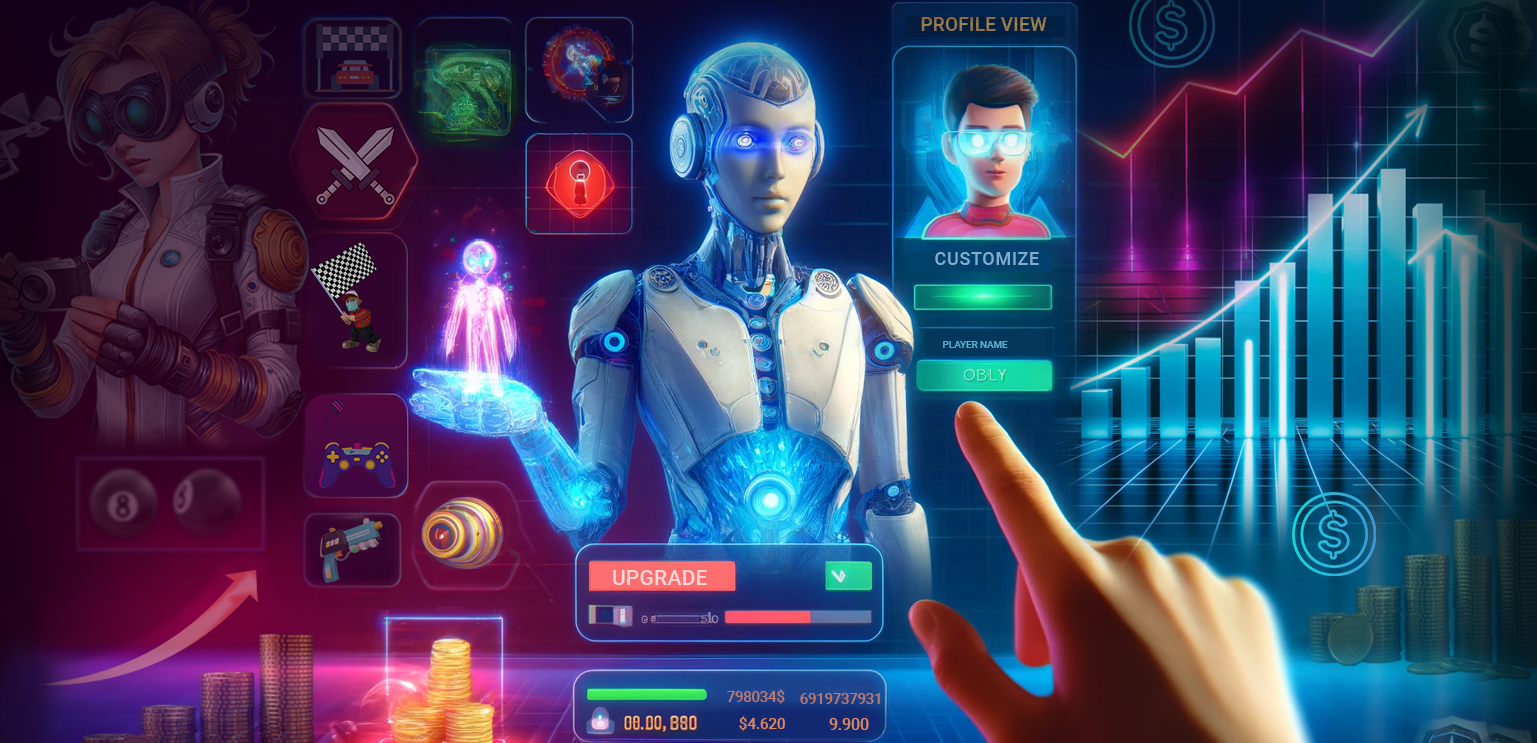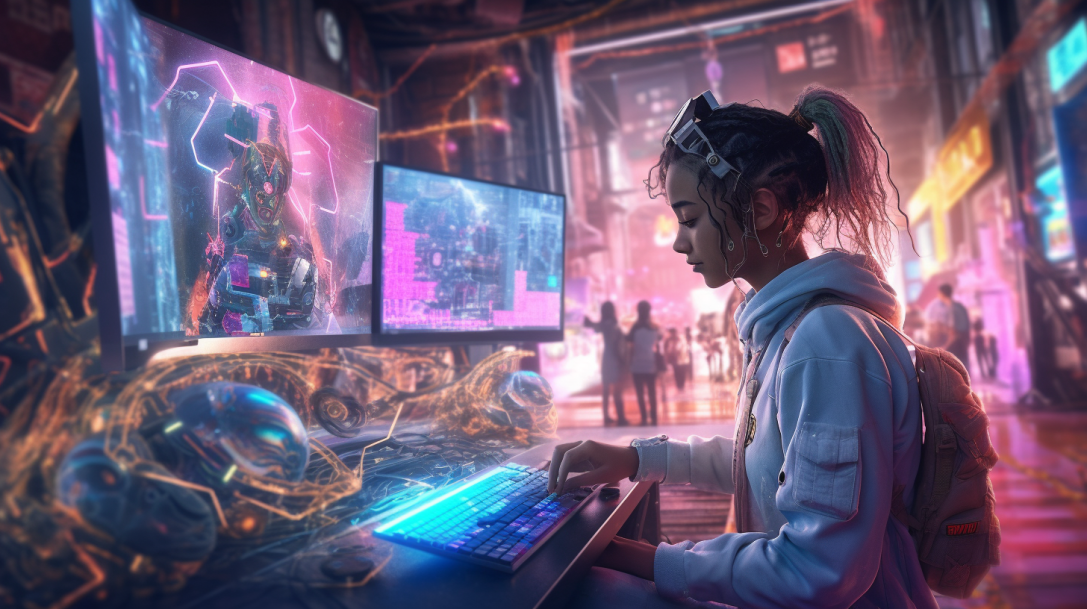Artificial Intelligence (AI) is revolutionizing the gaming industry by creating smarter characters, more immersive experiences, and dynamic game environments. Real-world case studies reveal how AI is transforming the way games are designed, played, and experienced.
How is AI Used in Gaming?
AI in gaming involves using algorithms to control non-player characters (NPCs), generate realistic environments, personalize player experiences, and enhance game design processes. By integrating AI, developers are creating games that feel more responsive, challenging, and lifelike.
Key Case Studies in AI and Gaming
1. F.E.A.R. (First Encounter Assault Recon) – Intelligent Enemy Behavior
In the game F.E.A.R., Monolith Productions implemented advanced AI to give enemies tactical awareness. The NPCs could take cover, flank the player, and adapt their strategies based on the player’s movements. This level of enemy intelligence created a more engaging and unpredictable combat experience, setting a new standard for AI-driven shooters.
2. Middle-earth: Shadow of Mordor – The Nemesis System
Monolith’s Nemesis System revolutionized in-game storytelling. AI tracked players’ interactions with enemies, allowing unique rivalries to develop. Enemies would remember previous battles, hold grudges, and grow stronger after each encounter. This personalized gameplay experience made each player’s story unique and deeply immersive.
3. The Sims – Simulating Human-Like Behavior
The Sims series uses AI to simulate complex emotional and social interactions. Each character operates based on needs, relationships, and environmental influences. This AI-driven behavior creates lifelike, dynamic worlds where players can indirectly shape characters’ lives through their decisions.
4. No Man’s Sky – Procedural World Generation
Hello Games used procedural generation powered by AI algorithms to create an almost infinite universe with over 18 quintillion planets in No Man’s Sky. Each planet features unique ecosystems, terrains, and life forms, offering players endless exploration opportunities without manually designing each environment.
5. AlphaGo – Reinforcement Learning in Gaming
Though not a traditional video game, Google’s AlphaGo demonstrated AI’s potential in complex strategy games by defeating world champions in Go. This milestone showcased the power of reinforcement learning and inspired the development of smarter AI opponents in digital games.
6. AI Dungeon – AI-Driven Storytelling
AI Dungeon uses the GPT language model to generate interactive, player-driven stories in real time. Players can input any action or dialogue, and the AI crafts a unique narrative on the fly. This represents a groundbreaking shift in gaming, where stories evolve without predefined scripts.
Challenges and Considerations
While these case studies highlight impressive achievements, integrating AI in gaming comes with challenges:
- Balancing Difficulty: AI must provide intelligent opposition without becoming frustratingly difficult.
- Ethical Use: Personalization must respect player privacy, especially when collecting gameplay data.
- Avoiding Bias: AI-generated content should avoid reinforcing stereotypes or inappropriate themes.
Conclusion
AI is reshaping the gaming industry by enabling smarter gameplay, dynamic storylines, and limitless worlds. The case studies discussed show how AI enhances immersion, personalization, and realism in games. As the technology evolves, developers must balance innovation with ethical considerations to ensure AI continues to elevate the gaming experience responsibly.







Leave feedback about this